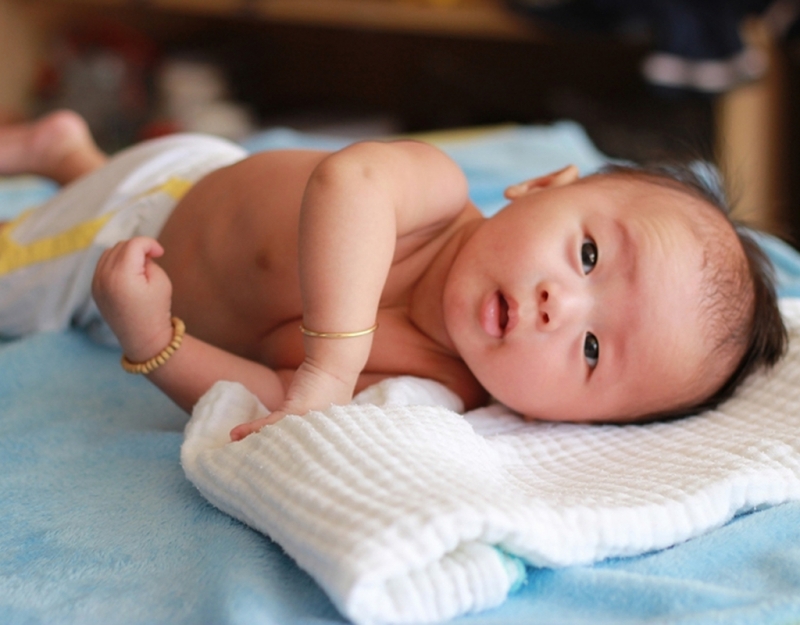When you fall pregnant, the last thing on your mind may be how much a baby is going to cost you and your partner. Far more important is the impending birth, life with a new baby and your infant’s first gurgles, smiles and steps. But, as boring as it may sound, it’s vital to address the fiscal impact of a new addition on your family.
In 2016, NZ Herald calculated the cost of raising a child in New Zealand to be just under $16,000 per year per child until the age of 18.
To help you get ready for the financial implications of starting a family, here are eight steps you can try.
Pay off your debts
Babies are costly enough without having other debts to think about, so try and consolidate your debts and have them mostly, or partly, paid before you have a baby. If you own your own home, and have built up some equity, redrawing against your mortgage to pay off debts can be cost-effective, as home loans usually have lower interest rates than other forms of credit. Alternatively, roll your debts onto a low or no interest credit card, and try to pay off your debt in the interest-free period, or apply for a personal loan designed to help with debt repayment, to reduce your payments and the amount of monthly interest.
Budget for life with a baby
If you’ve never set up a household budget, now is the time to start. With so many new and unexpected costs coming out of your pay packet, you’re going to need to know where your money is going if things get tight. Sit down with your partner and draw up a monthly budget, detailing your incomings and outgoings – it’s often easiest on an Excel spreadsheet – just search on-line to find lots of sample templates to work from. Things to include are:
- Fixed essentials (items that cost the same amount each month): Rent/mortgage, utility bills, insurance, travel costs, childcare.
- Variable monthly expenses: Food, petrol, mobile phone bills, haircuts and exercise classes.
- Variable luxuries (items that could be cut out when necessary): Socialising, eating out, cinema, dance or sports classes, gifts.
Start a baby fund
While your monthly budget should – hopefully – leave you with money to spare, consider investing any surplus into a baby fund to use as a buffer during the leaner months ahead. Simply set up a direct debit to take a payment out of you or your partner’s bank account during the last few months of pregnancy, transferring it into a high savings account. Then, when baby arrives, and your household income drops, you’ll have a slush fund to cover unaccounted expenses.
Live on one wage for a month
Giving up one household income is pretty dramatic – which is why money experts advise testing to see if it can be done before your baby arrives. If you can’t make it work, then you’ll have to re-think your budget and see where cuts can be made. If you can manage on one income – well done – now just siphon off the savings into your baby fund to feel ultra organised in the months ahead.
Switching to interest only
In the months after baby arrives, it might be worth considering switching to interest-only home loan repayments if you need to tighten your purse strings. Conditions might include a valuation of your property, to ensure your property has risen rather than fallen in value (although this depends on your mortgage lender). Also remember that once you revert to paying principle and interest, your repayments will probably rise to compensate for the principle-free payments in the previous months or the term may be extended. Always consider all of the financial implications including fees before switching – talk to your bank about your plans and seek financial advice if you are unsure.
Spend smart
While the average family spends thousands of dollars setting up for a new baby, it’s easy to reduce it to a few hundred dollars. You’ll find good-as-new cots and hardly-used prams on websites like Trade Me. These websites are great for second-hand and unworn baby clothes, cheap nappies and baby wipes. Most families will need to splash out on a baby seat to make their car infant-friendly, so buy a convertible model that lasts from birth to four years to save money in the long run. And if you want to read up on pregnancy and birth, head to your local library for myriad free parenting books.
Add up the baby benefits
Check out the New Zealand Government website to see whether you are eligible for any Child Support or Family Benefit subsidies and how to apply for these.
Plan for their education
It may seem like a long time before your baby goes to school, but time passes quickly, and education is an expensive game. Consider: school fees, school trips, uniforms, school bags, text books, extra tuition, overseas holidays, transport costs, school lunches, musical instruments and home computers. And that’s without including university fees, accommodation, living expenses, etc. You may consider saving for their education through a high-interest account, or investing in shares or a managed fund designed to pay for your child’s future education. Investing comes with risks and you should seek financial advice before committing to an investment strategy.







We slowly saved up and bought things before our babies arrived I even used the old cloth nappys when the kids were little then bought the snap nappys reusable as I found normal nappy didn’t work the same at night. But saving is a great idea throughout there lives as when they get to teenage years things cost even more schooling , uniforms and all the extras. Trade me or Facebook groups are great for getting second hand items for children as well.
Remember to reach out to local community support groups. I know at Pregnancy Help Inc they help with maternity clothes, equipment and nappies. This can be a good help when $$$$$$$$$ are short. Saving before the baby is a good idea if you can, it just takes one less stress off you
I had a spreadsheet. I worked out from feedback from parent friends approximately what nappies their kids were in and for how long and managed to guesstimate how many nappies and wipes to buy while I was on maternity leave. I got it pretty close to haha.